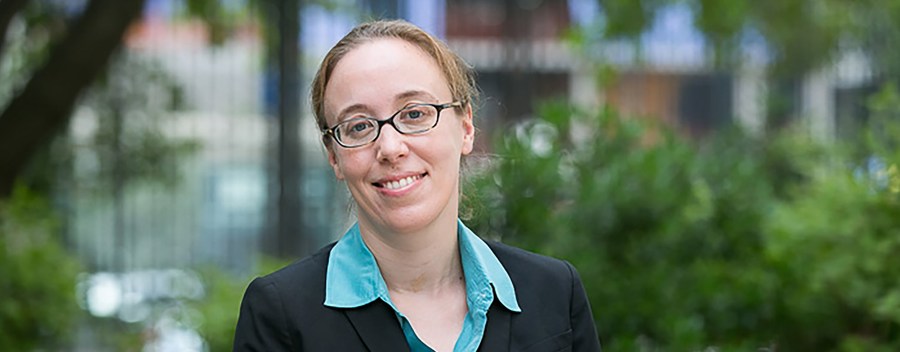
“THIS IS A TIME in our local history when we are truly able to say that change in the landscape of local criminal justice is possible,” said Professor Jocelyn Simonson. Simonson, codirector of the Center for Criminal Justice at Brooklyn Law School, has dedicated her scholarship to exploring ways in which the public participates in and has the potential to catalyze broader changes in the criminal justice system. She examines this topic further in her forthcoming article, “The Place of ‘the People’ in Criminal Procedure,” in the Columbia Law Review, in which she puts forth an alternative approach to thinking about popular participation in criminal procedure, recognizing that “the people” can and do appear on both sides of the scales of justice.
Simonson’s recent scholarship has also focused on the interrelated issues of bail reform and decarceration. For example, her article “Bail Nullification” in the Michigan Law Review (2017) considered the growing phenomenon of community bail funds, which allow individuals to post bail for strangers based on their broader beliefs regarding the overuse of pretrial detention.
“By examining the ways in which community bail funds serve the functions that a nullifying jury might—allowing popular participation in an individual case to facilitate larger resistance to the policies and practices of state actors—[I argue] that community bail funds have the potential” to contribute to legal and political change from the ground up, she wrote. “Community bail funds inject community input into a critical moment in the public adjudication of a criminal case.”
She has also created pathways allowing students to participate in this work, launching the Law School’s Pretrial Justice Fellowship program, in which students do pro bono work with the Brooklyn Community Bail Fund and take part in a series of trainings on money bail, legal advocacy, professionalism, and policy reform.
Simonson’s scholarship has been published in top law reviews. Notably, her article “The Criminal Court Audience in a Post-Trial World” in Harvard Law Review (2014), which examined the importance of the right to a public trial in the world of plea bargaining, was one of only two law review articles cited by the U.S. Supreme Court in its majority opinion in Weaver v. Massachusetts, a case about the right to a public trial.
Looking ahead, Simonson said she hopes to focus her scholarship more deeply on the kinds of reform efforts that will be necessary to truly shift the status quo in criminal justice.
“What kinds of approaches will allow us to productively channel public energy for change into transformative law reforms?” she asked. “And how can we build institutions of governance that shift power to populations most affected by mass incarceration? Those are the kinds of questions I want to ask and, I hope, answer.”